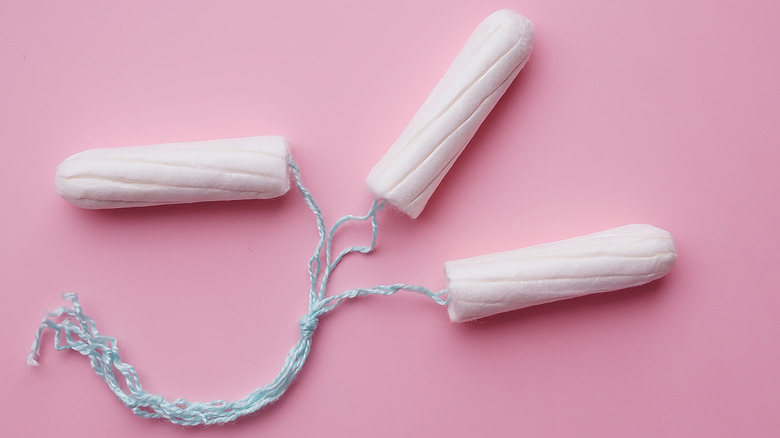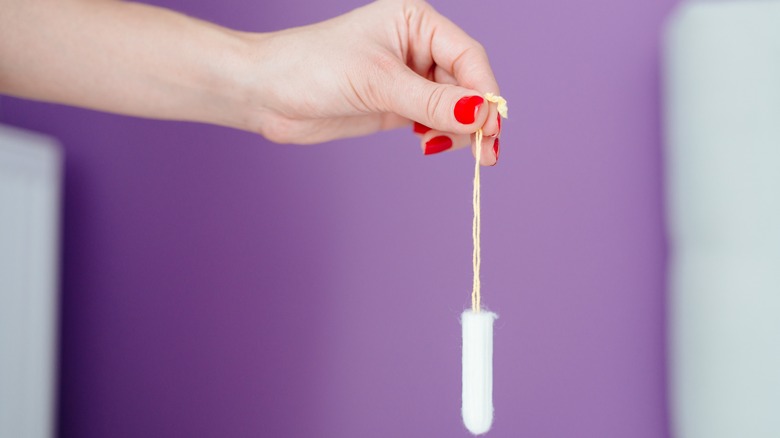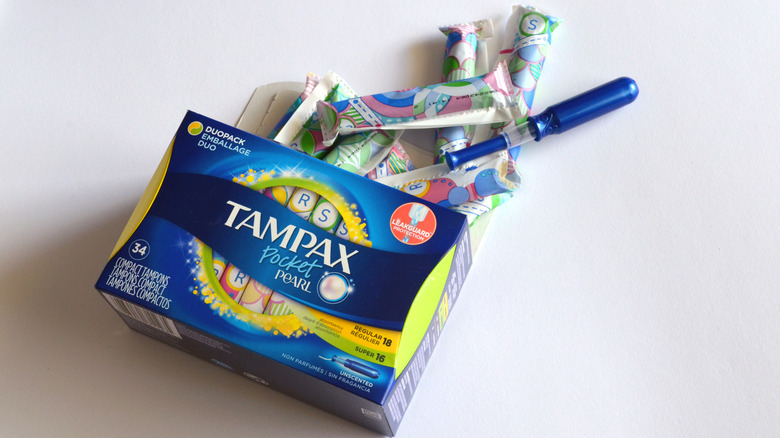Do Tampons Expire?
Your groceries aren't the only items with a shelf life. Just like makeup, first aid supplies, and cleaning products, tampons, too, have an expiration date (via Insider). How is that so? How can you tell when your stash of tampons is approaching its use by date? And is there a way to extend the product's shelf life?
Tampons approved by the U.S. Food and Drug Administration (FDA) are made of cotton, rayon, or a mix of both, and undergo a bleaching process that the FDA states is "free from elemental chlorine, which also prevents products from having dangerous levels of dioxin (a type of pollutant found in the environment)." Tampax, the top recommended tampon brand by gynecologists in the U.S., asserts they make extra efforts to ensure the safety of their users by keeping their tampon products fragrance-free and their protective applicators void of BPA.
While the safety of tampon products is monitored by the FDA, there is no established regulation regarding their expiration, according to beauty and healthcare products company Rael. Plus, you won't see an expiration date on every box. Nevertheless, tampons are not good forever. Now that you know tampons do expire, here's how long you should keep them before refreshing your supply.
Tampons can become contaminated and moldy over time
Tampons are susceptible to mold and bacterial growth, and for this reason they should not be kept for longer than five years, Dr. Candice Fraser, OB-GYN of Your Doctors Online, told Insider. You definitely don't want mold and germs breeding on your tampons. "These organisms can alter the pH of the vagina and lead to vaginal odor, discharge, and infections," Dr. Fraser said.
As it turns out, tampons are not immune to bacterial growth because they are not designed to be sterile (via Rael). Although the FDA regulates tampons as medical devices, unlike surgical tools that are required to be completely free of germs, tampons are required only to be "clean," meaning free of only the most potentially dangerous forms of bacteria or mold. Therefore, tampons that are approved by the FDA are still susceptible to contamination by fungus, mold, bacteria, and other microbes over time if not properly stored, according to Insider.
How to safely store your tampons
It's important to note, however, that the five-year-rule is not universal. If tampons are improperly stored, they may need to be trashed sooner rather than later. Tampons that are stored long-term in the bathroom are more readily exposed to moisture in the air from steamy showers, and moisture breeds bacterial growth (via Insider), so consider keeping your products elsewhere. "Tampons should be stored in a cool, dry environment," Dr. Carol Dunetz, gynecologist at NYU Langone Ambulatory Care Lake Success, told Insider.
Experts recommend keeping a lookout for signs indicating that tampons have gone bad, such as noticeable discoloration or the presence of mold (via Insider). Tampons with rips in the packaging should be considered as good as expired. All in all, even if your tampons haven't yet reached their five-year deadline, if the tampon appears to have suffered some wear and tear, it's best to avoid usage.



